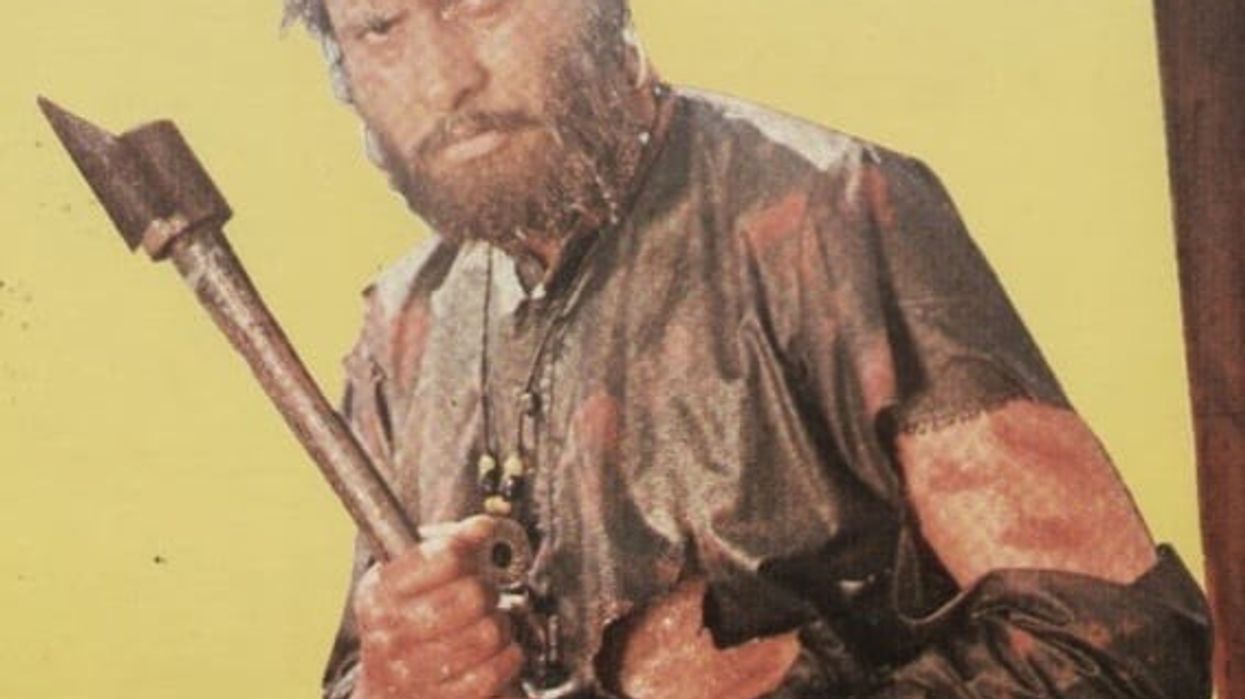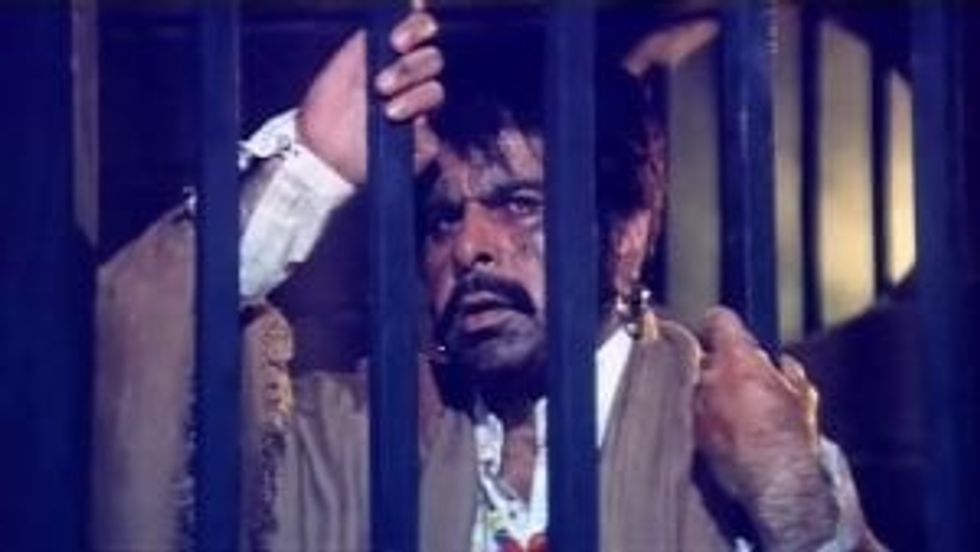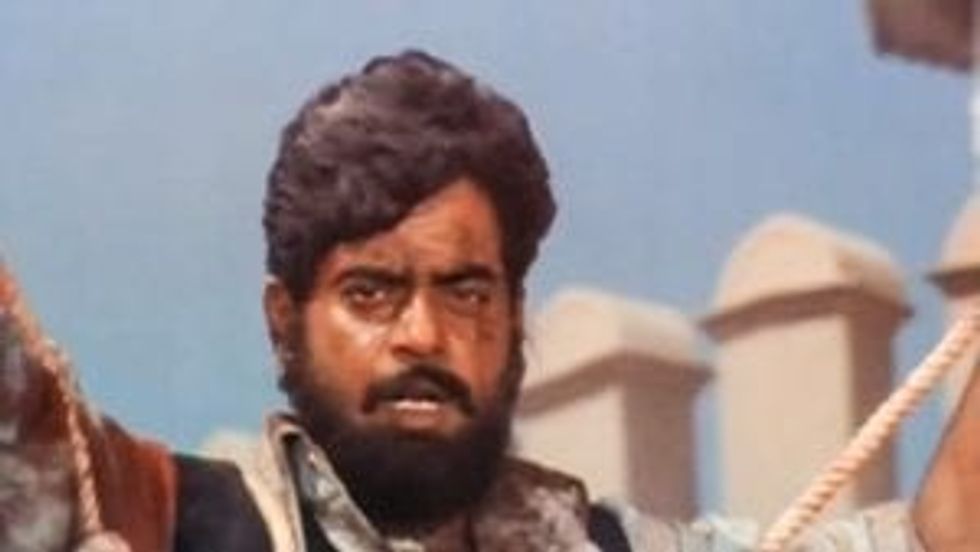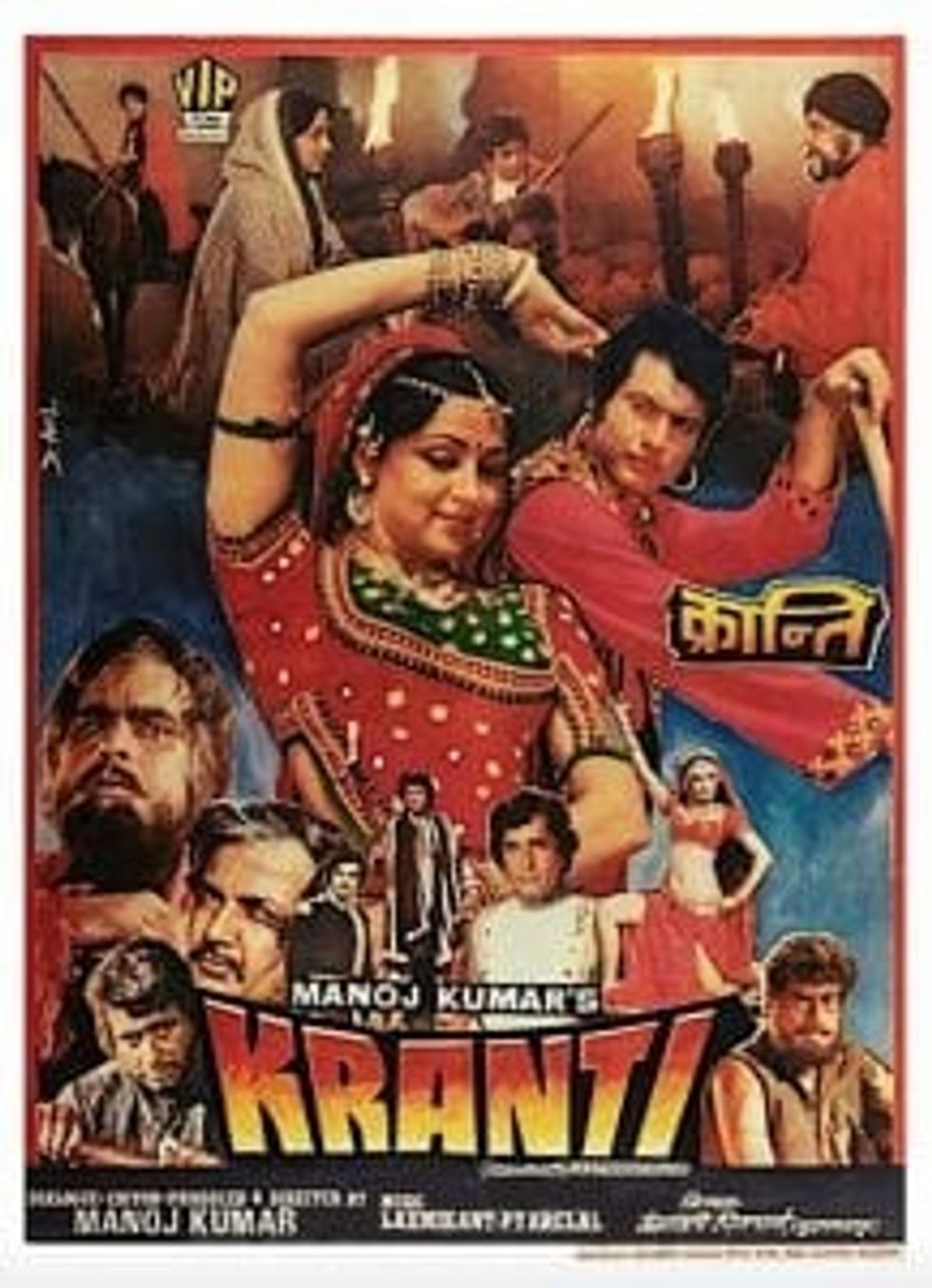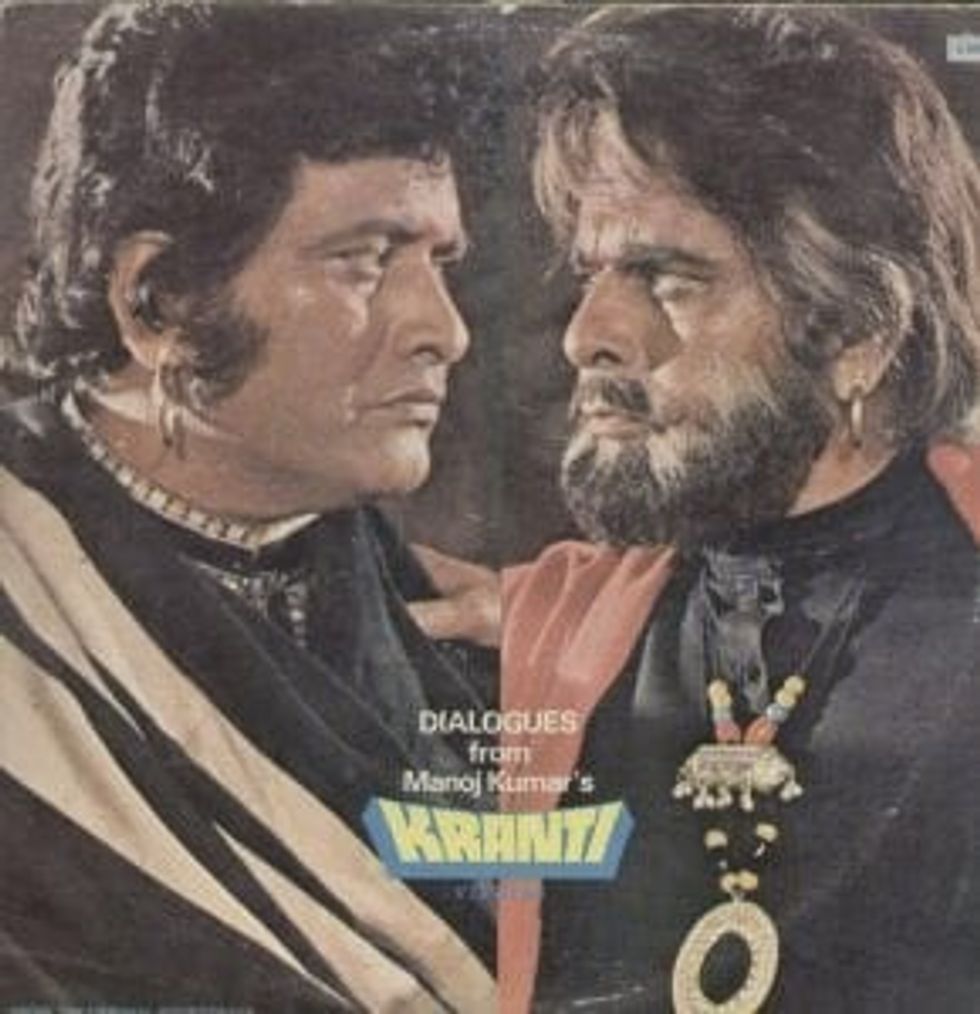by ASJAD NAZIR
THIS week marks the 40th anniversary of cult Bollywood classic Kranti, which was released on February 6, 1981.
The larger-than-life multi-starrer about freedom fighters in 19th cenury British India was produced and directed by lead star Manoj Kumar, who had assembled an impressive star cast for his most ambitious venture.
Eastern Eye revisited the patriotic Hindi cinema classic with 20 fun facts about it.
■ Kranti became the highest grossing Bollywood film of 1981 and played housefull in some cinemas for 67 days straight. It outperformed even legendary classics such as Naseeb, Laawaris, Kaalia, Ek Duuje Ke Liye and Silsila, which released the same year.
■ Legendary actor Dilip Kumar (above) was persuaded to come back to Bollywood after a five-year hiatus. It was a sweet moment for producer, director and lead star Manoj Kumar, real name Harikishan Giri Goswami, who had named himself after a character played by his idol in 1949 film Shabnam.
■ Manoj Kumar had always used the voice of singer Mukesh in his movies and as he had passed away by the time Kranti had commenced, he got his relatively unknown son Nitin Mukesh for songs in the film, instead of opting for a bigger named music star.
■ The huge star cast includes a small role for legendary actor P Jairaj, who holds the record for the longest career in Bollywood, which stretched from 1929 to 1995.
■ The original choice for Shatrughan Sinha’s (above) role was in-demand superstar Amitabh Bachchan, but he didn’t have any free dates.
■ Vinod Khanna was the first choice for Shashi Kapoor’s role, but wasn’t available and Vyjayanthimala turned down the character that was eventually played by Nirupa Roy.
■ Parveen Babi had a bigger role in the original, but Manoj Kumar found her troublesome, so killed off her character in the movie.
■ Ajay Devgn’s late father Veeru Devgan was the stunt director on the movie and even makes an appearance in it.
■ Although Manoj Kumar had previously starred opposite superstar actress Hema Malini, including in 1976’s highest grossing Bollywood film Dus Numbri, Kranti was the first time he was directing her. She was shooting Razia Sultan at the same time, so he had trouble balancing her dates while shooting.
■ As the cost of the big budget movie spiralled out of control, Manoj Kumar had to sell off personal assets to complete it.
■ Legendary duo Salim-Javed wrote the screenplay from an idea given to them by Manoj Kumar and then with their permission made edits, including writing the powerful dialogues, which were such a huge success that they were later released on vinyl.
■ The film, set between 1825 and 1875, is inspired by stories of Indian freedom fighters, who tried to revolt against British rulers.
■ By the time shooting had been completed, over 10 hours of footage had been shot, which had to be edited down to just over three hours.
■ The opening credits of the film only arrive after a 21-minute build up in the movie, which was a first in Indian cinema.
■ Manoj Kumar got his young son Kunal Goswami to make his acting debut in the film. He appears in the opening scene playing the son of his father’s character.
■ The film received mostly poor reviews, but that didn’t stop it from becoming a commercial success and a cult classic.
■ After the film released, Manoj Kumar fell out with lead star Dilip Kumar over alleged disparaging remarks he made about him during promotions. He also fell out with Bollywood legend Pradeep Kumar, who felt he was short-changed in the final edit and didn’t get the respect he deserved.
■ Many film analysts feel the Dilip Kumar character inspired the Amitabh Bachchan role in mega-budget 2019 film Thugs Of Hindostan, with many similarities.
■ The Kranti soundtrack was a huge success and decades later inspired the song Basmatee Gyal by Stinky & Brian Mohan, which used the music from the film’s song Zindagi Ki Na Toote Ladi.
■ After a triumphant career as a leading man and filmmaker, Kranti would be the final success of Manoj Kumar’s (right) career and the last high-profile movie he was involved with.
